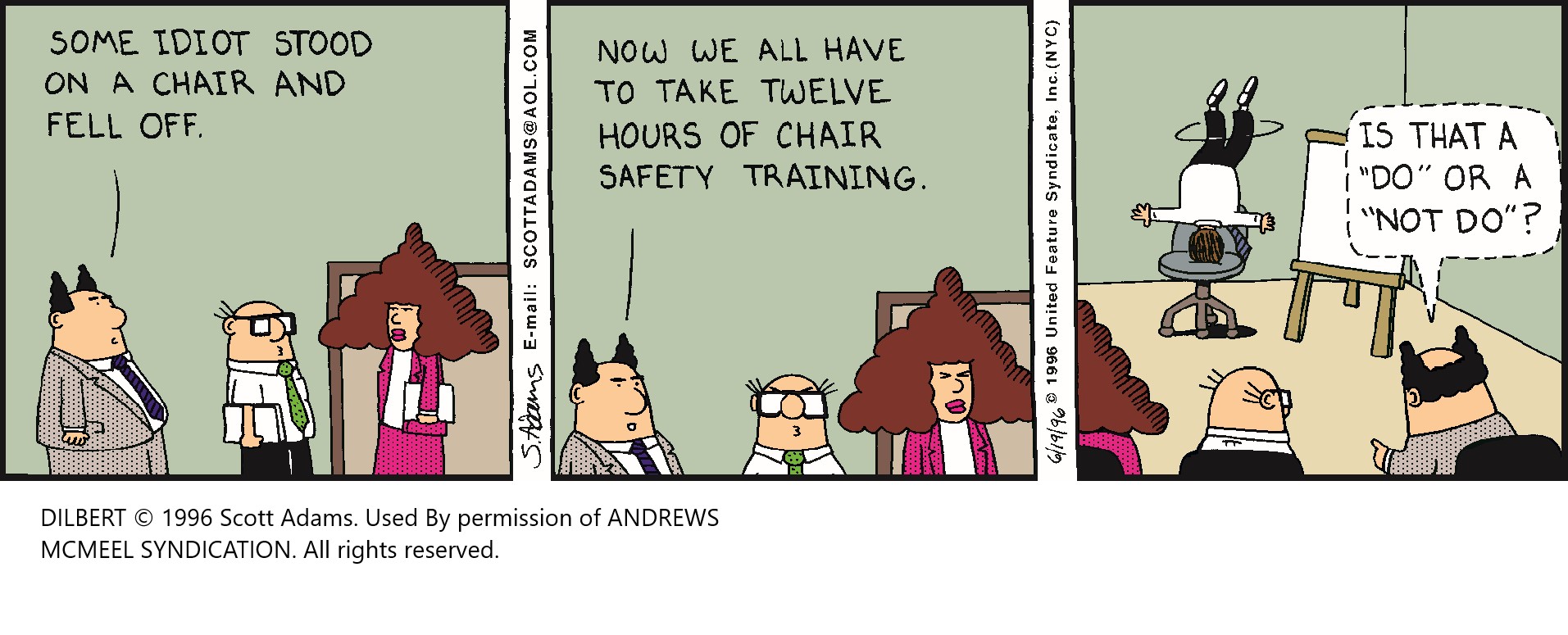And the reactions to the title probably include the following: Whoa- clickbait, right? What an ignorant statement–a well trained workforce is part of any successful organization! Training is an essential part of quality and customer satisfaction! Training is one of the essential HR functions!
My responses to the above four statements are: no (even though you are reading this), yes, yes, and yes.
You will notice I am not advocating that the training function be eliminated. I am suggesting you eliminate the Training (or Staff Development) Department.
Training and development are important. But the problem with a department dedicated to training is that training becomes the answer to every problem.
Here are a few scenarios that may sound familiar:
(1) A family member complains that a staff member in registration was rude. Response, everyone in Patient Registration receives training on customer service.
(2) The patient survey results show that patients are dissatisfied with telephone contacts with the family practice centers. Another call for the training department to retrain the front desk in proper phone etiquette.
(3) Safety Committee statistics an increase in patient falls on all nursing units. Training is held for all inpatient nursing staff on the proper way to ambulate patients.
What’s wrong with the responses to these scenarios? What if we found out that:
(1) Mary is the registration clerk that is consistently rude. There are no problems with any other employee in the department.
(2) Neither rudeness nor poor phone etiquette are responsible for the patient dissatisfaction. They are upset with the automated phone attendant system and the 18 levels they have to go through in order to speak to a real person!
(3) Housekeeping department had recently changed vendors on the floor finishing wax they used. This was responsible for the increased falls not improper ambulating techniques.
The old saying is true, “If the only tool you have is a hammer, then everything looks like a nail!” Training becomes a Pavlovian response whether it will actually correct the problem or not.
So what is the answer? Try replacing the Training function with a Staffing Effectiveness function. Replace Trainers with Performance Consultants. Training may be a part of the solution but is not the ONLY solution.
Training focuses on processes. Staffing Effectiveness focuses on outcomes!
In this model, the function has the skills to analyze the root cause of process or performance issues and apply the correct solution. The skills may include process improvement, team facilitation, root cause analysis, flow charting, staffing models, productivity, etc.
Staffing Effectiveness works with the manager to identify the cause of the problem and bring the right solution to is. If training is the answer, then training is applied. If a work process flaw is identified, then process improvement is implemented.
Personal Experience
When we used this model, it was win-win for the departments, the Performance Consultants and the organization. The former “trainers” were excited about their expanded roles and skill sets. Managers had a resource to assist them develop better management, improved work processes and outcomes. Specific problems had specific solutions.
Often, the Staffing Effectiveness Department was not solving a “problem”. They might be used to effect work redesign or other improvement.
In one project, the Performance Consultant worked with family practice to assess what tasks were being performed by what skill level (Physician, RN, LPN, CSC). It was shocking to find out many routine tasks could be performed by a lower level.
Implementing their recommendations resulted in a win-win for all. The physicians and RNs were ecstatic to be rid of tasks that did not require their level. Those on the lower level were happy to have additional resonsibility.
The Performance Consultants also became an integral part of moving the organization toward high performance. It is another way HR became a “player” in discovering real world solutions to the real world challenges. Position your department to reveal and fix the real problem rather than throwing training at it and hope for the best!



One thought on “Is it Time to Get Rid of Your Training Department?”